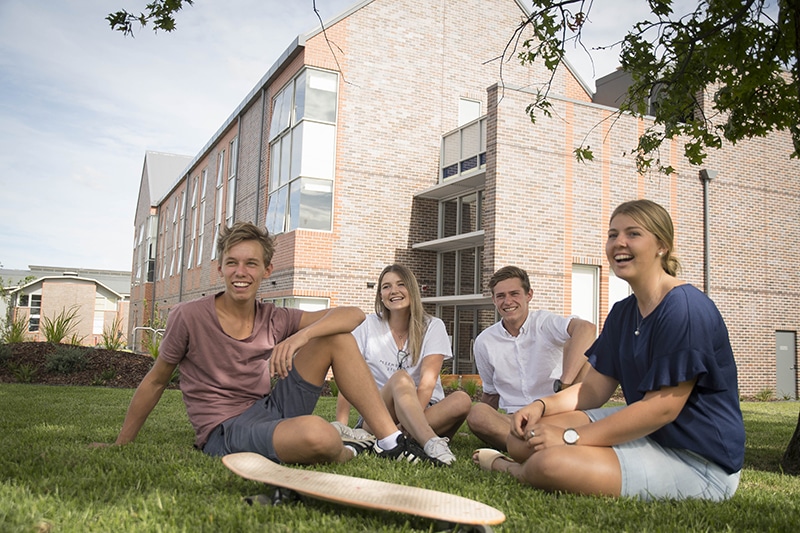
Continuing from our last blog post on the changing face of contemporary boarding, now we look specifically at the needs of boarders, and the expectations of their parents.
In her research into the Australian boarding industry, Ascham School’s Head of Boarding Sue Newton has noted the needs of adolescents and their parents, along with parental expectations, are more complex now than ever before.

As well, there have been changes in the traditional boarding market, with changes within the historical catchment of rural and remote families, and schools have had to increasingly diversify into other markets, such as more urban professional parents and international students.
“There’s been a shift to more home-like environments (at schools) and warmer interactions between boarders and staff are more common, as well as greater parent engagement and increased professionalism,” explains Ms Newton.
Reflecting that level of professionalism with the individual at the centre, is the integrated approach of care outlined by Barker College’s Director of Boarding, Jon Rheinberger.
“We have a network of support that includes academic staff, counsellors, health staff, boarding duty staff, tutors, coaches and other support staff.
“Good communication between them enables everyone to do their job well in supporting the individual.”
Meeting expectations
One of the common threads that come through from schools is the expectation that parents have of wanting a clear, personalised plan for their child 24 hours per day, 7 days per week.
Mr Rheinberger says parents coming into a boarding community do need to understand the nature of “living in community”.
“We stress there are lots of routines and structures – some of which we guard carefully – that are important for the healthy and happy functioning of our boarding house.”
Head of Frensham, Julie A Gillick says parents should expect clear plans of their child’s boarding experience – reported in the same detail as expected from a non-residential part of the school.
“In most schools, boarders have complete access to all that is available in the school, but across the full day and the full week.”
Access to academic and personal support has become a cornerstone of many boarding schools, with offerings of academic tutors, homework clubs, counselling staff, and a dizzy program of co-curricular activities.
Kinross Wolaroi School’s Director of Boarding, Matt Curran says they also work towards meeting student needs by actively involving students in all facets of boarding life.
“Through student forums and via feedback, our students have a voice in what their boarding experience looks like.
“It’s also important to cater, as best as one can, to the needs of the individual rather than the collective, as happened in the past.
“Open communication and regular dialogue between students, parents and boarding staff is vital for ensuring expectations are managed.”
As Director of Enrolments at The Armidale School (TAS), Pip Warrick mentioned in Part 1, parents have higher expectations than previous generations and society has a growing focus on individual rights rather than collective responsibilities – all of which offer challenges to the boarding experience.
“Staffing structures, homework (‘prep’) arrangements, leave entitlements, technology policy, nutritious food, gauging the mood and happiness of students are all important to parents.”
Ultimately though, St Ignatius College’s Adrian Byrne says all parents want to know the school is authentic.
“All schools have brochures and advertisements, so it’s important parents come to see us to know what we’re offering.
“There’s no point promising something to families that you can’t deliver on, so it’s important to let parents know all the facts and give them time to make a decision.
“Parents will make the decision in the best interest of the child.”
One of the best starting points after looking at what schools are available is to come to a Boarding School Expo to speak with staff from the schools, before going on to select those you wish to visit. All the information you need to follow these three steps in selecting schools is on our website.

Part 3 – Technology in the boarding house
In the third part of this series on contemporary boarding we look more closely at technology – the challenges, the policies and the positive uses of technology in a boarding environment.
Next post: 26 May 2018
Part 1 – The changing face of contemporary boarding
In the first of our three-part series on contemporary boarding, we talk to seven boarding schools to find out how they’re operating in a changing educational sector, where there’s more choice than ever.
Find more information about boarding school life and choosing schools in our blogs as well as what questions to ask schools about boarding on our Checklist page.
Share